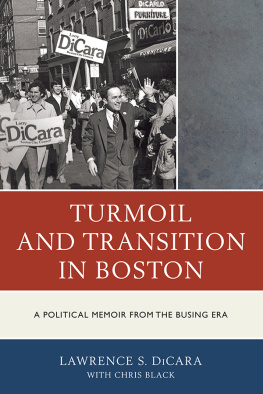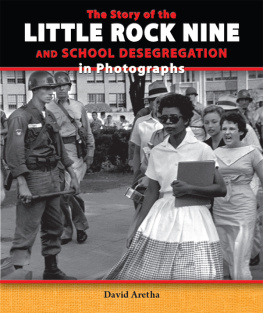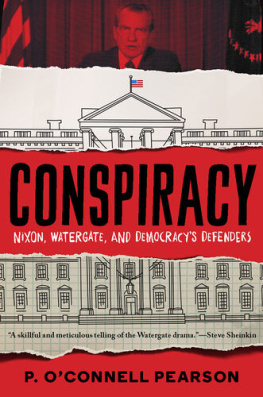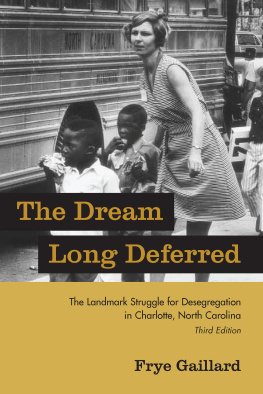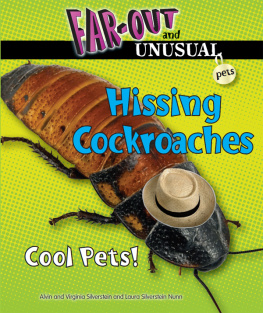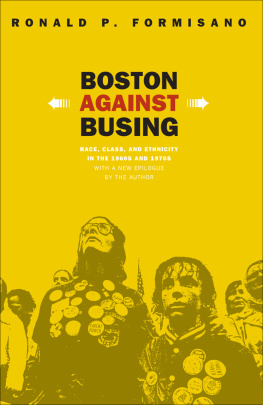WHITE GIRL
WHITE GIRL
A Story of School Desegregation
BY CLARA SILVERSTEIN
Published by the University of Georgia Press
Athens, Georgia 30602
2004 by Clara Silverstein
All rights reserved
Set in 10/13 Caledonia
Printed and bound by Maple-Vail
The paper in this book meets the guidelines for permanence and durability of the Committee on Production Guidelines for Book Longevity of the Council on Library Resources.
Printed in the United States of America
08 07 06 05 04 C 5 4 3 2 1
Library of Congress Cataloging-in-Publication Data
Silverstein, Clara, 1960
White girl : a story of school desegregation / By Clara Silverstein.
p. cm.
ISBN 0-8203-2662-3 (hardcover : alk. paper)
1. Silverstein, Clara, 1960 Childhood and youth. 2. White childrenVirginiaRichmondBiography. 3. Middle school studentsVirginiaRichmondBiography. 4. Girls VirginiaRichmondBiography. 5. WhitesVirginia RichmondBiography. 6. School integrationVirginia RichmondHistory20th century. 7. Ricmond (Va.)Race relations. 8. Richmond (Va.) Biography. I. Title.
F234.R553S55 2004
975.5451043092dc22 2004007729
British Library Cataloging-in-Publication Data available
ISBN for digital edition: 978-0-8203-4588-8
In memory of my father, Joseph Lee Silverstein Jr., February 11, 1926 March 6, 1968
Contents
Acknowledgments
This story is true to the best of my ability to remember and retell it. I have changed the names and some identifying details of most of the people within it to protect their privacy. For historical background and statistics, I am indebted to The Color of Their Skin, Robert A. Pratts study of desegregation in Richmond (University Press of Virginia, 1992). Also useful for background information was James L. Dohertys self-published Race and Education in Richmond (1972). An excerpt from the story was published in StyleWeekly newspaper in Richmond on September 11, 2001, to commemorate the thirtieth anniversary of widespread busing in Richmond; another excerpt was published in the online literary journal Blackbird in May 2004. Throughout the text, I use the term black, rather than African American, reflecting the vernacular in use during the time period of the story. The book reflects the careful editing of Jennifer Reichlin and copyeditor Gay Gragson, for which I am grateful.
I am also grateful to those who read and commented on early drafts, especially Fay Chelmow, Theo Collins, Cindy Duffy, Wendy Epstein, Esther Blank Greif, Berkley Lynch, Barbara Rabin, Monica Harari Schnee, Jim Steiker, Joanna Stein, Robin Stein, Michael Toms, Allen C. West, Mary Helen Willett, Michael Paul Williams, Judy Wurtzel, and Sharon Wurtzel.
For their enduring interest and moral support as I kept writing and rewriting this book, I thank Amy Eppler-Epstein, Diana Hume George, Martha Harney, Susan Katcher, Carol Peacock, Bernice Schnee, and Murray Schnee; Boston Herald colleagues Jane Dornbusch and Rosemary Herbert; and my reading group: Kay Cahill Allison, Laurie Burgess, Jody Feinberg, and Judy Gelman. I also thank David Herlihy for his legal advice.
I would not have been able to envision the scope of this book without the guidance of teachers like Ken Ringle, who asked all the right questions at the outset, and Richard Hoffman, who helped me find the essential story to tell. As a writer, I benefited enormously from the advice and direction I received from Mary Jean Irion and workshops at the Writers Center at Chautauqua, and from Barbara Helfgott Hyett and the Workshop for Publishing Poets.
My family saw me through the long, brooding months of writing and revisions. My mothers assistance with family research was invaluable, as was her encouragement. I am grateful that my husband, George, put up with me while I relived adolescence; he also edited innumerable drafts and steadfastly reminded me to keep the past in perspective. My children, Jordan and Martha, gave me the incentive to retell the past and to look forward to the future.
WHITE GIRL
Prologue. Bedtime Stories
My four-year-old daughter, Martha, pulls the pink comforter up to her chin and asks the same question she asks every night: Could you tell me a story from when you were little?
I turn off her reading lamp and snuggle next to her. It is more than five hundred miles from this bedroom to the yellow one in which I slept during my childhood. I picture that room, with its orange and yellow flowered bedspread, oak desk, and window overlooking the dogwood tree in the backyard of our house in Richmond, Virginia. Then I start remembering stories.
I have already told her how I fell off the jungle gym and chipped my tooth, already described roller skating in the street with my dog, Cinderella, at my heels. Tonight, a memory of my seventh-grade history class flashes into my head. I am at my desk, my arm behind a stack of textbooks, surreptitiously holding hands with the boy sitting in front of me. It makes me smile and cringe. I am white. The boy in front of me is black. I ride a bus to a school where most of the children are black. It is Richmond in 1971. I am supposed to be sitting in class with him. I am not supposed to be touching him.
I cant tell her that story tonight, though. She wont understand. I barely understand a lot of the time that I lived through school desegregation, but Im going to try. There is no conventional way to relate it no prince or princess, no magic, no happily ever after. I became one of the few white children to desegregate a black school because my mother believed in integration, as did my father, who died when I was seven years old. As a child, I was most concerned about succeeding as a student, making friends, and growing up in spite of the court orders sending me from one school to another.
My memory of middle school flares like a match inside a cavern. I see myself creeping around the linoleum corridors, hunched over, afraid someone is going to trip me as I walk by. My white face gleams like a lantern. Everywhere I go, people look. I cant cover myself up.
I have spent twenty-five years trying to seal off this memory, but my daughters voice has tunneled through. My story is usually lost in the historical accounts of busing. Because I am white, nobody threw rocks at me. No police escorted me to my classroom. I graduated and can still enjoy the privileges that go with being white. But if I learned nothing else, I did come to understand the scourge of racism. I was a minority in school. I was treated with indifference, disdain, and hostility just because of my skin color.
Its not just a slogan for me to teach tolerance to Martha and to my seven-year-old son, Jordan. I want both of them to read this story one day and learn that life has not always been one big multiculti party on MTV. That positive social change is sometimes forged from hostile faces and cigarette ashes flicked carelessly in the school bathroom. That once upon a time, a preacher named Martin Luther King Jr. had a dream, and my family responded to it.
I still believe in that dream. I just wish there had been an easier way to make it come true.
A School Bus, a Mothers Tears
A school bus looms ahead of me, blocking out the shafts of early sunlight. I hurry my two children along. Today, for the first time, they are taking a bus to elementary school because the building they normally walk to is being renovated. When they peer out the windows at me, I wave.


